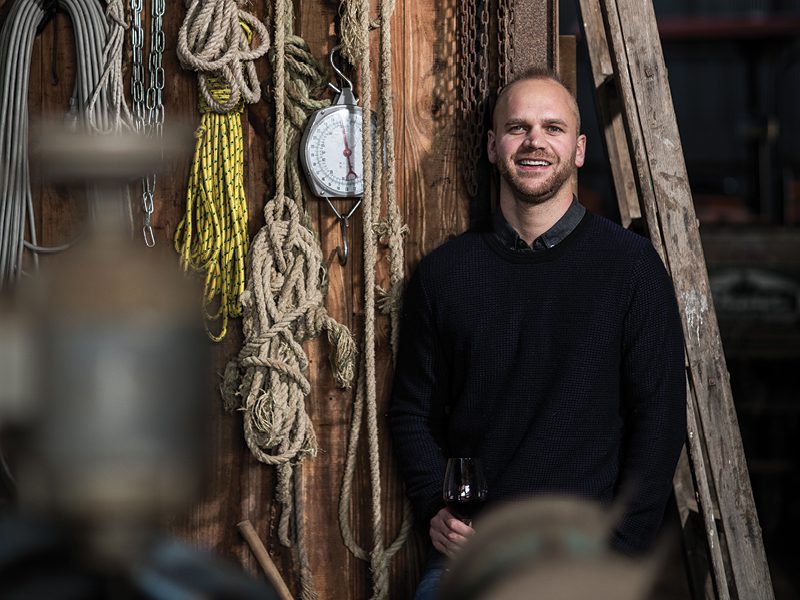
Winemaker, viticulturist, salesman and plumber? Young Gun Michael Downer wears many hats.
Michael Downer enjoyed a night on the town in Melbourne to celebrate his Young Gun of Wine award with his friends and peers. Then it was back to reality for the 32-year-old, running the business from the kitchen of his parents’ farmhouse at Oakbank in the Adelaide Hills. But not before sharing a home-cooked meal of lamb chops and three veg with his family, washed down with a bottle of Murdoch Hill 2016 The Tilbury Chardonnay. “That was good for the soul,” Michael says.
The Downer family has owned the ‘Erinka’ mixed farm since 1939. Michael’s father Charlie established the 22-hectare vineyard in 1998 during the wine boom with the help of Adelaide investors, planting sauvignon blanc, chardonnay, shiraz and cabernet sauvignon. They sold most of the grapes but kept some for their new Murdoch Hill label, with twice McLaren Vale Bushing King Brian Light making the first wines.
Michael started a viticulture degree but soon switched to winemaking. He worked for Shaw + Smith for four years and later Revenir winery, where he was exposed to the technical prowess of Peter Leske (ex-AWRI) and the creativity of the emerging star Taras Ochota. Michael moved back to the farm in 2012 and focused on approachable, early-drinking styles and unusual blends such as Ridley Pinot x Two, a blend of Pinot Noir and Pinot Meunier; next vintage it will become Pinot x Three with some Pinot Gris in the mix. He worked with small batches, whole bunches, larger format oak and short maturation times to retain freshness and brightness of fruit. These styles resonated with the market, with production doubling to 5000 cases in five years.
“Now I am trying to build more layers and textures into the wines to make more complete, balanced styles,” Michael says. “I’m using extended time on skins, subtle whole bunch influence, spontaneous ferments and minimal additives to show a pure expression of its place.”
Michael, who learnt about the retail trade and international wine styles while working at East End Cellars in Adelaide, went on the road to sell Murdoch Hill, focusing on high-end Sydney and Melbourne restaurants and wine bars. “I was pretty green as a salesman, but fortunately the wines were well received, which led to good exposure,” he says. “I only had one or two in the trade who didn’t want to see me. It’s a busy, cut-throat industry. I had a good strike rate. It was important to do those trips to understand what the market was looking for.”
In true family business style, Charlie looks after the books and Michael is the viticulturist and winemaker. “And the plumber,” he adds. “And yeah, I guess I’m also the sales manager.” He has two older brothers: Henry, who works in corporate finance; and Andrew, a graphic designer who lives on the farm and works with Michael one day a week on label design and marketing.
Michael is the fourth generation Downer to farm the land. The family has not been afraid to diversify over the years, dabbling in potatoes, and Charlie and his wife, Julie, even headed to The Netherlands once to source bulbs for tulips and irises for a new flower nursery. Grass-fed black angus beef is the mainstay of the farm. They supplied packaged beef to high-end restaurants once, including Duncan Welgemoed’s Africola. With beef prices the highest they’ve been for years, they have since found it easier and more profitable to sell the beef to a large supermarket.
Michael sets out to make “sound, enjoyable, drinkable products”. “A lot of people say my wines are very pleasing, which is a nice thing to hear.”
He is not obsessed with single-vineyard wines; his first move after returning to the farm was to source chardonnay from the higher, cooler parts of the Hills. The Tilbury Chardonnay 2016 came mainly from Piccadilly Valley and Lobethal vineyards at 450 to 550 metres altitude.
“Those sites are better suited to the style of chardonnay I want to make – more mineral and in that gratefruit spectrum. I found our own site to be a little bit exposed; the eastern part of Oakbank gets a bit more sunshine than other areas.
“The Adelaide Hills is such a diverse region – it’s 70 kilometres long and 50 kilometres wide – with a huge range of mesoclimates. It’s much easier to take different parcels throughout the region and blend them. You end up with a better result. It’s about working with your strengths. Our vineyard strength is shiraz – and chardonnay and pinot noir perform better in those higher reaches. One day we may invest in a vineyard in those parts, but I have good relationships with growers and we’re all working together to produce the best fruit.”
Michael spent a vintage in Barolo and has travelled extensively. He has just been to Hermitage. He says the one thing those travels taught him was to showcase the regional and sub-regional qualities of the fruit at your disposal, “while expressing the vintage they represent rather than trying to produce a conformed product year in year out”.
Michael has put a lot of work into the vineyard, converting a block of chardonnay to the Bernard 76 and 95 clones. “There is more complexity of flavours in the wine now than before. We’re also trying to open up the canopies to allow for a bit more airflow. A difficulty with the Hills is we do get a lot of rainfall, so the disease pressure is challenging.”
Cabernet franc was grafted this year; the wine will be blended with cabernet sauvignon. “I think it will add nice vibrancy and lift to the wine,” he says. He plans to plant malbec and newer clones of shiraz. Most of the vines are now cane pruned and Michael is trialling an undervine mower to remove weeds. He’s working towards organic principles. “It’s definitely something we’re looking into. These things don’t happen overnight.”
Michael thinks chardonnay is the variety the Hills should champion. “It’s probably one of the largest plantings and can express itself differently in various sub-regions in the Hills,” he says. “Hills Chardonnay shapes up really well in the Australian context. We know it is some of the best in the country and it stacks up on a world scale, too. You can harvest with depth, power and freshness – it doesn’t get much better. It sits in the nice middle ground where we get very cold nights for acid retention, but good sunshine during the day for depth of fruit.”
Michael is not one to follow fashions. “I simply make wines that I like and put my own stamp on them with my global understanding of wines.”
As for the Murdoch Hill site’s shiraz: “We’re trying to express it in a bright, aromatic, red-fruited style. We call it syrah rather than shiraz, to have that point of difference from the Barossa and McLaren Vale because we are in a cooler climate.”
The 2017 vintage challenged Adelaide Hills growers. Michael says chardonnay and pinot noir are the highlights. “It was a very wet season, but these marginal years can bring great results. The cool, steady ripening period developed excellent fruit, and the wines are showing delicate, refined characters with beautiful natural acidity.”
The wine business is “ticking along”. Michael says the farm has never had any major debt and the family is keen for Murdoch Hill to follow that tradition – hence the temporary kitchen table office. No fancy cars round here; Michael drives the ultimate farm vehicle: a white Toyota Hilux dual-cab. “It even took me a while to get that,” he says with a laugh. “I got my way eventually.”
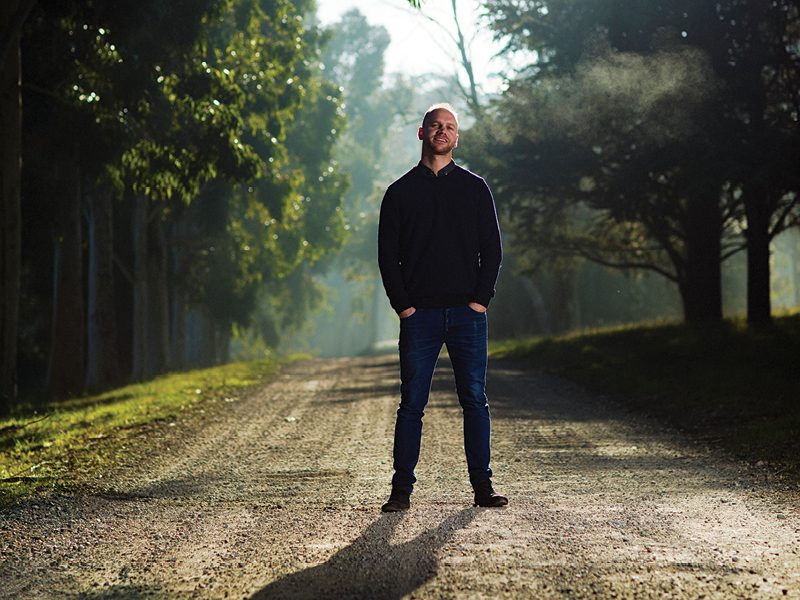
The business plan was to get a few runs on the board and “a bit of direction happening” before investing in big-ticket items. The winery occupies a corner of a large farm shed on the picturesque property with rolling hills and large gums. Plans for a new cellar door are with council; Michael says it will tie in with the rustic nature of the farm. “It will give us a face,” he says. “And any sales through cellar door is the cherry on the top.” Michael has not dismissed bringing back packaged beef at cellar door. “I think an on-site butcher would be pretty cool,” he says.
The cellar door will have an office; Michael will move on from the pots and pans – and the aroma of freshly baked lemon tart. “Mum is constantly telling me to clean up my mess. There are lots of distractions, of course, with people popping over. Mum is a very good cook, she does some beautiful cakes, which is always handy for morning tea. But yes, it’s time for a proper office.”
Sauvignon blanc once made up 85 percent of production at Murdoch Hill; it has plummeted to 20 percent, with most of it sold in Adelaide. “It’s a bit out of fashion in the eastern states – they prefer chardonnay, shiraz and pinot noir,” Michael says. Thirty percent of production is exported to 12 countries. Michael thinks 10,000 cases would be manageable. “We don’t want to make a million cases or anything silly.”
The Downer name is famous in the Hills. Former Australian Foreign Minister Alexander Downer is a distant relative. Michael’s nickname at the Adelaide University Football Club was The Foreign Minister. “I grew up on the agricultural side of the Downer family, not the political, but it’s great to have such a political influencer of this county as a relation,” Michael says.
The 1975 film Picnic at Hanging Rock shows a horseman taking school girls down a driveway on a drag. It’s Michael’s grandfather, Tom, a collector of horse-drawn carriages; that drag is in a shed on the farm. Tom died before Michael was born. “He was quite the character, by all reports,” Michael says. The wines in the Artisan Series are named after horse-drawn carriages including The Landau Syrah, Sulky Blanc and The Surrey Pinot Meunier.
“I wanted those wines to have their own identity and to tell the story of the farm. I thought it would be great to have a tribute to my grandfather, rather than it being all about Murdoch Hill or me. It’s a link back to the farm, which my grandfather set up for us.”
Michael won back-to-back People’s Choice awards in the 2015 and 2016 Young Gun competition. He says the family is chuffed with the top gong. “It’s exciting to have success on the farm. I love making wine and feel fortunate to be given the opportunity. I started with a few small ferments that got the tick of approval and it carried on from there. I’m over the moon to be in the company of the previous Young Guns – it’s quite extraordinary.”
Michael says his dad is always complaining that the wine industry involves too much paperwork, but achievements like this one make it worthwhile. “Dad doesn’t like a few of the wines,” Michael says. “We don’t produce much of the two Young Gun wines, and with all the press we’ve had, they have been sought after. He told me to make sure I leave him a six-pack – and ‘maybe one for yourself’.”
A DRC will complete the family celebration. “It’s something Mum promised me if I won the award but I don’t think she realised the rarity and prices of these wines.”
• Article appeared in the July-August edition of WBM – Australia’s Wine Business Magazine. Photos: Mike Smith.
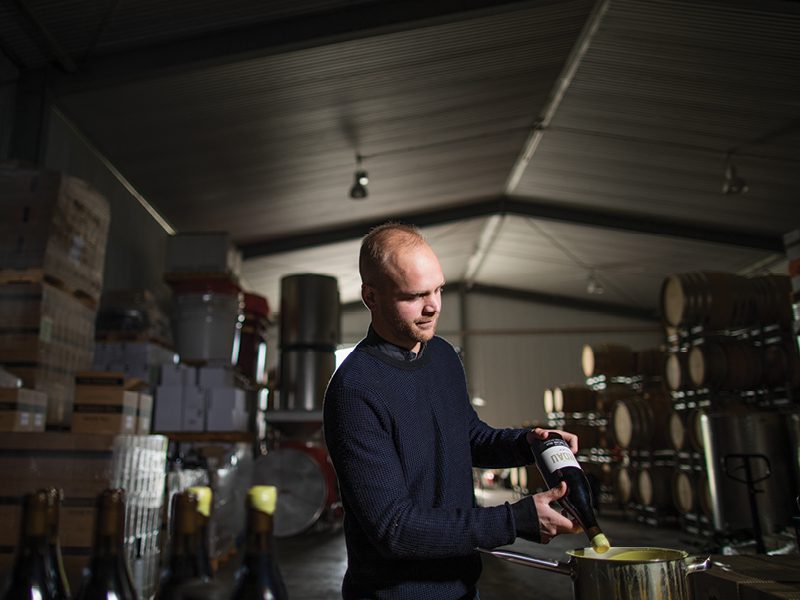
Latest cover story
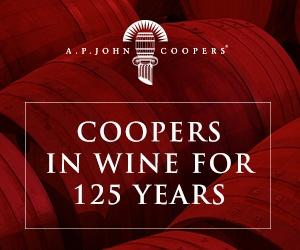






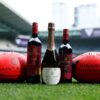
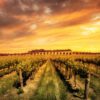
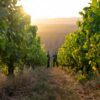
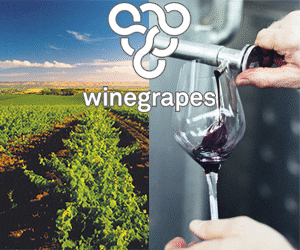
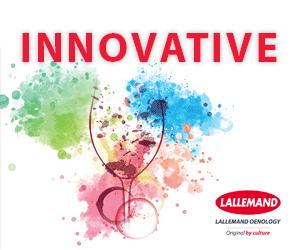
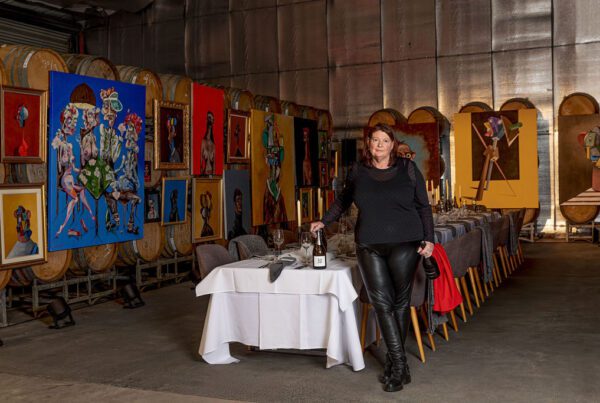
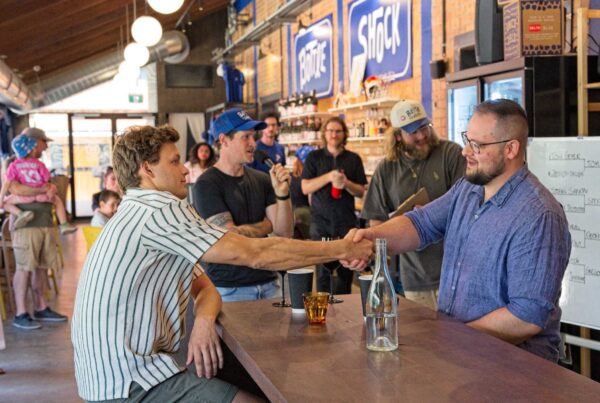

Recent Comments